Four young scientists, accompanied by Eskom Expo’s Business Manager, Mmamoloko Rancia Riba, won their place to represent the country at the Indonesia competition, renowned…
6 of the best games that no one played
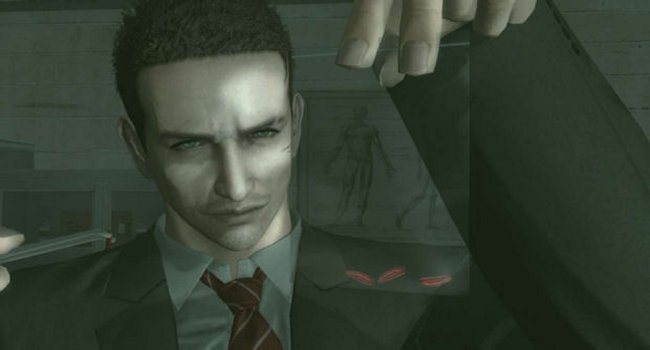
It’s easy to get into a conversation with a gamer regarding Fifa, or Call of Duty, or Halo. If they’re male and under thirty, chances are they’ve played them all. Canny marketing and extensive advertising ensures these games are omnipresent, and the fact they’re released annually ensures they’re always relevant.
But what of the myriad great games that never enter the general gaming consciousness? What of the games no one bothers to play? Alright, it’s a touch hyperbolic: these games do enjoy small hardcore followings. This list highlights several under-appreciated gems that deserved to sell well, but didn’t.
Deadly Premonition (Xbox 360, 2010)

Welcome to the worst game of all time… and also the best. If that strikes you as paradoxical, you’ve yet to play Deadly Premonition, the most shockingly dated, ugly, shoddily designed videogame imaginable, but also the most wonderfully quirky and ultimately polarizing experience on the Xbox 360.
Deadly Premonition is ultimately Twin Peaks: The Game in that it borrows so much from David Lynch the auteur could viably seek legal action. You play a cop, York, who investigates the murder of a girl in a sleepy rural town. As the leads stack up, the cast of strange characters mounts. Sound familiar? And even when the story carves a path of its own, Lynch’s surreal touches are ever-present.
Deadly Premonition became a viral phenomenon upon its US release and a PAL version emerged some months later. You’ll struggle to find a copy of the game in countries like South Africa, which is a shame, because this adventure game is memorable for all the right, and wrong, reasons.
S.T.A.L.K.E.R.: Shadow of Chernobyl (PC, 2007)
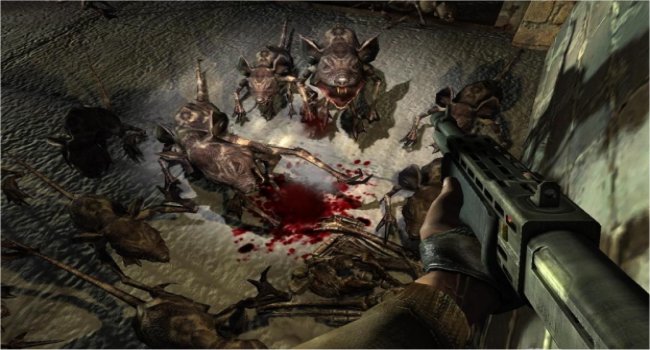
Like its bloated acronym, S.T.A.L.K.E.R.’s gestation was far longer than the norm. First announced in 2001, it was six long years before the final product surfaced.
Set in the vicinity of the Chernobyl nuclear plant, the game’s irradiated wasteland is home to armed mercenaries and mutated animals vying for your blood. As the Marked One, you’re a nameless and faceless presence in a world that affords few niceties. It’s necessary to scavenge guns and ammunition to survive. As the harsh world takes its toll, your guns begin to rust and jam, and it’s possible to starve should you fail to find food. Like seemingly all games developed in Eastern Europe, S.T.A.L.K.E.R. teems with potential. It fails to fully realize this potential thanks to buggy gameplay, but it’s still a treat to play. While it sold well in Europe, it enjoyed only niche appeal in the rest of the world.
Catherine (Xbox 360, PS3, 2012)
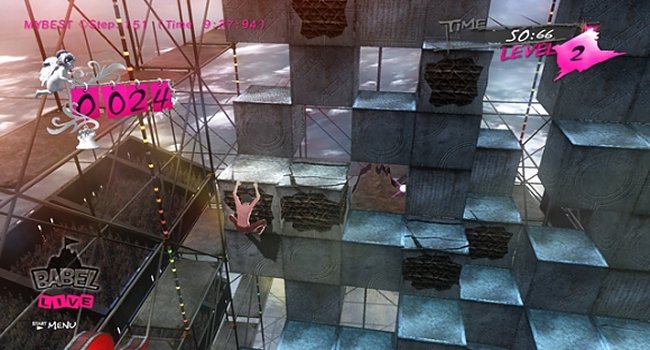
It’s not surprising Catherine didn’t sell by the boat-load. For one, it’s comprised almost entirely of story, not gameplay. For another, it’s a twisted, anime-stylized fusion of whodunit novels and Mills and Boon chick-lit. You play as Vincent Brooks, an unassuming guy with a well-meaning girlfriend, Katherine. Then the buxom blonde, Catherine, enters the fray, and Vincent wakes up in a cold sweat believing he’s slept with her. So begins a series of recurring nightmares in which you control Vincent at the foot of a block tower, guiding him to the top in the face of steadily increasing challenges. The blocks need to be arranged to form staircases, but time is limited since the floor drops away as the clock ticks by.
After each nightmare, the story progresses, drawing you into a mad, claustrophobic world. By the end of the game you’ll feel you’ve joined Vincent in his nightmare, largely thanks to awful voice-acting, while the game’s propensity to repeat its soundtrack leaves you with a headache. Yet Catherine exerts an inexorable pull that ushers you its conclusion, with one of eight different endings, depending on the choices you make during the story.
The Chronicles of Riddick: Escape from Butcher Bay (Xbox, PC, 2004)
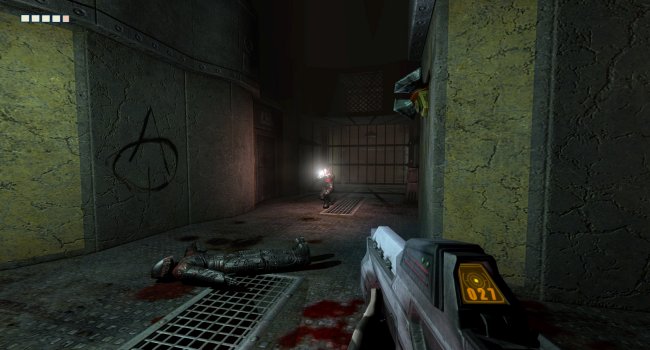
Videogames based on movies are a shameless cash-cow. Few emulate the thrills of a summer blockbuster; fewer still stand as good games in their own right. But Escape from Butcher Bay bucks this trend. The prequel to Pitch Black, it features Vin Diesel as the titular Riddick imprisoned on a notorious intergalactic hellhole. Diesel lends his likeness and voice to the role and he brings his Hollywood chums along for the ride. Rapper and chop-shop enthusiast Xzibit is the voice of prison guard Abbott, while Ron Perlman (Hellboy) plays the mysterious Jagger Valance.
Don’t be put off by the Hollywood connection. Diesel is reportedly a videogame enthusiast and clearly has good taste. Escape from Butcher Bay received unanimous critical praise, scoring 9.3 on GameSpot. Today it boasts a metascore of 90.
In fact, I still play it today. A marriage of first-person shooting and third-person platforming (giving us a good view of Diesel in his virtual simulator), the game mixes run-and-gunning with RPG-esque fetch quests that work remarkably well in tandem. It was ultimately overlooked in favour of Valve’s Half-Life 2 (released the same year) but it has aged well, and demands to be played even today.
Vanquish (Xbox 360, PS3, 2010)
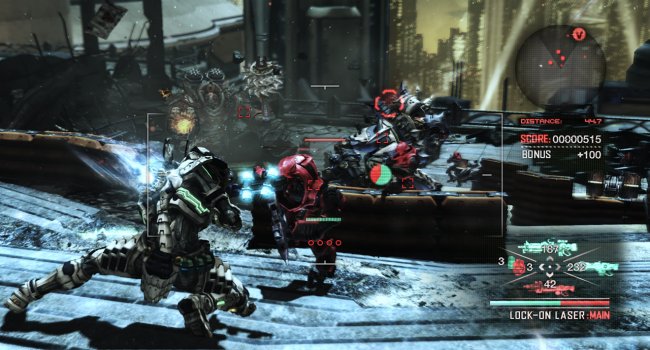
As one of the best action games on the Xbox 360, and also one of the most polished, Vanquish’s dismal commercial return can only be for two reasons: the first, it has a terrible name. Secondly, it boasts equally awful box art.
Granted, this is a story of a thousand stereotypes, lacking sophistication and refinement. Yet this makes it only the more surprising that it hasn’t been snapped up by spotty teenagers the world over. Where Gears of War is about muscles and homoeroticism, Vanquish features futuristic dudes in full body suits (which are thankfully retractable, allowing the characters to get their nicotine fix). It’s resolutely B-movie and I love it. This is Japan’s answer to the third-person action games we gorge on, and it’s a crime that it never sold by the million.
Grim Fandango (PC, 1998)
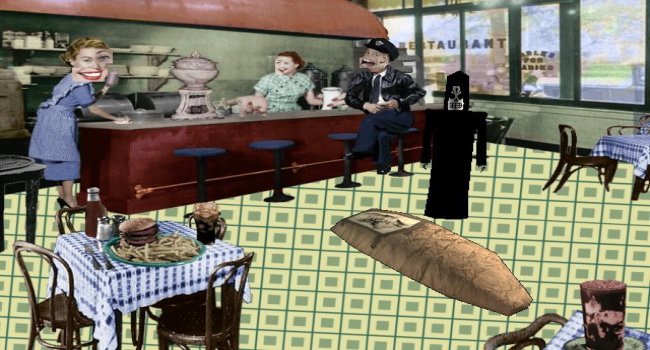
The last game on this list is also my favourite, and one I fondly remember. A LucasArts adventure of the highest order, Grim Fandango was released in a day and age when LucasArts adventures were no longer popular. Like Riddick, it’s another victim of Valve’s success, occupying the same shelf space as the original Half-Life.
You’re Manuel Calavara, a salesman for the Department of Death. With his papier-mâché face and trusty scythe, Manny scours the world for the recently deceased in the hope he can sell his best travel packages to clients seeking the Eternal Resting Place. But he’s stuck with dead-end clients and, unable to pay off a heavy debt, forced to work the job with no route to eternal rest himself.
It’s a long, beautiful game, replete with art deco styling and striking film noir touches. Despite its age, it still looks great. The puzzles are difficult, but never illogical, and Grim Fandango eschews pointing-and-clicking for a keyboard setup that works surprisingly well (with enough tinkering, it might be conducive to a gamepad today).
Play this at all cost.
And so
Much like deciding on a film to watch at the cinema, it’s easy to plumb for a game we’re familiar with. Yet sequels never replicate the thrill of a new experience, and with the prospect of more Halos and Gears of Wars to come this year (apparently trilogies extend beyond 3s now) you’d do well to give these undiscovered gems a look.

